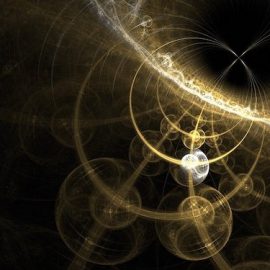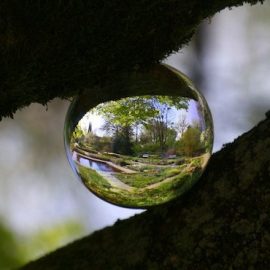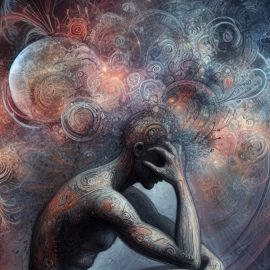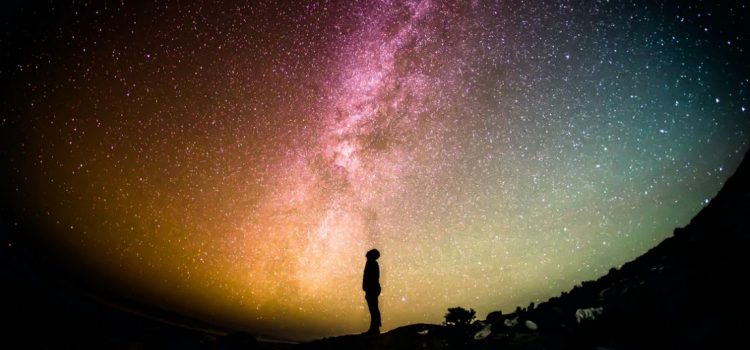
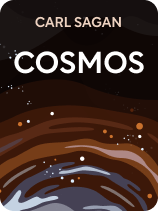
This article is an excerpt from the Shortform book guide to "Cosmos" by Carl Sagan. Shortform has the world's best summaries and analyses of books you should be reading.
Like this article? Sign up for a free trial here .
What is Earth’s place in the universe? How big is the universe? Is our planet significant?
The late astronomer and scientist Carl Sagan described Earth’s place in the universe—both physically and significantly. He paints a picture of just how vast the universe is and how inconsequential our blue-green planet is.
Here’s why humans should be humbled by the size of the universe.
The Vastness of the Universe
What is Earth’s place in the universe? While Earth seems special and central to our perspective, from the cosmic perspective it’s a minuscule piece of rock floating in a vast universe. To begin to understand just how vast the universe is, Sagan explains that distances between the celestial objects are so huge that we measure them in speed of light units. Light travels 6 trillion miles (10 trillion km) in one year, and a little over 11 million miles (18 million km) in one second. Earth is 8 light-minutes away from the sun. (Shortform note: to put it in perspective, the known universe—the distance we can measure—is about 94 billion light years across.)
So, to understand our place in the universe as Sagan describes it, we’ll begin with Earth and zoom out. The Earth and our eight planet neighbors all orbit the sun, due to its gravitational pull. This is called our solar system. (Shortform note: to get an idea of the size of our solar system, Pluto, the furthest planet from the sun, is about 3.7 billion miles from the sun).
Zooming out further from our own solar system, Sagan tells us that the sun is a relatively ordinary star that resides toward the outer reaches of the Milky Way galaxy. A galaxy is an enormous cluster of stars, all linked together by gravity. A typical galaxy has an average of about 100 billion stars, Sagan says, and the cosmos includes about 100 billion galaxies. (Shortform note: Some astronomers now estimate that there may be about 2 trillion galaxies in the universe.)
Our own galaxy, the Milky Way, is relatively large, containing about 400 billion stars. Sagan says that the majority of those stars could potentially have satellites (planets) revolving around them, as does our sun. He says that evidence would suggest that most probably do, which suggests hundreds of billions of potential planets in just our galaxy alone, not to mention the other 100 billion known galaxies.
(Shortform note: This image depicts the spiral-shaped Milky Way galaxy. Notice the line pointing to the location of the “neighborhood” of our solar system. At this scale the individual features of our solar system itself would be far too small to see.)
If these numbers convey how vast the matter of the universe is, Sagan goes on to point out that despite the staggering number of stars and other orbiting objects in the universe, it actually consists of far more empty space than matter.
All of this considered, Sagan argues that we must conclude that we’re not that significant in the grand scheme of things. Not only is Earth’s place in the universe insignificant, but we humans are only one of innumerable possible forms of life, and even among the diverse life forms on Earth, we’re descended from blue-green algae, just like everything else. Sagan says that there’s no scientific justification for claiming that our place or position in the world is unique or special relative to anything else.
Despite this, he points out that many scientists have been persecuted and ostracized for making such claims.
| A Pale Blue Dot Sagan continues to emphasize humanity’s insignificance in his later book, Pale Blue Dot (published in 1994). The title was inspired by a photo of Earth taken by the Voyager I spacecraft from about 4 billion miles away. In that photo, the Earth appears as a tiny pinpoint in a vast dark sky. Sagan comments in Pale Blue Dot that it’s humbling to remember how insignificant we are, and this should help us recognize the folly of our pursuits for power and delusions of superiority. He says: “The Earth is a very small stage in a vast cosmic arena. Think of the rivers of blood spilled by all those generals and emperors so that, in glory and triumph, they could become the momentary masters of a fraction of a dot.” |

———End of Preview———
Like what you just read? Read the rest of the world's best book summary and analysis of Carl Sagan's "Cosmos" at Shortform .
Here's what you'll find in our full Cosmos summary :
- Carl Sagan's insights into some of the universe's biggest questions
- The history of astronomical discovery, from ancient Ionia to 1980
- Why humans will need “multigenerational” spacecrafts to explore space

